Tools Required
J 36850 Transmission Assembling Lubricant (Transjel™)
Removal Procedure
Caution: When the transmission is at operating temperatures, take necessary precautions when removing the check/fill plug, to avoid being burned by draining fluid.
- Raise and suitably support the vehicle. Refer to Lifting and Jacking the Vehicle in General Information.
- Place a drain pan under the transmission.
- Clean any dirt from around the transmission check/fill plug.
- Remove the transmission fluid check/fill plug and allow the fluid to drain.
- Support the transmission oil pan.
- Remove the transmission oil pan bolts.
- Loosely reinstall the fluid check/fill plug.
- Lightly tap the oil pan with a rubber mallet or pry gently in order to loosen the pan.
- Remove the transmission oil pan.
- Drain the remaining fluid from the oil pan.
- Grasp firmly while pulling down with a twisting motion in order to remove the filter.
- Remove the filter seal.
- Discard the seal.
- Inspect the transmission fluid. Refer to Transmission Fluid Check .
- Inspect the transmission fluid filter.
- Clean the oil pan gasket mating surfaces, on both the transmission case and the transmission oil pan, with solvent and air dry.
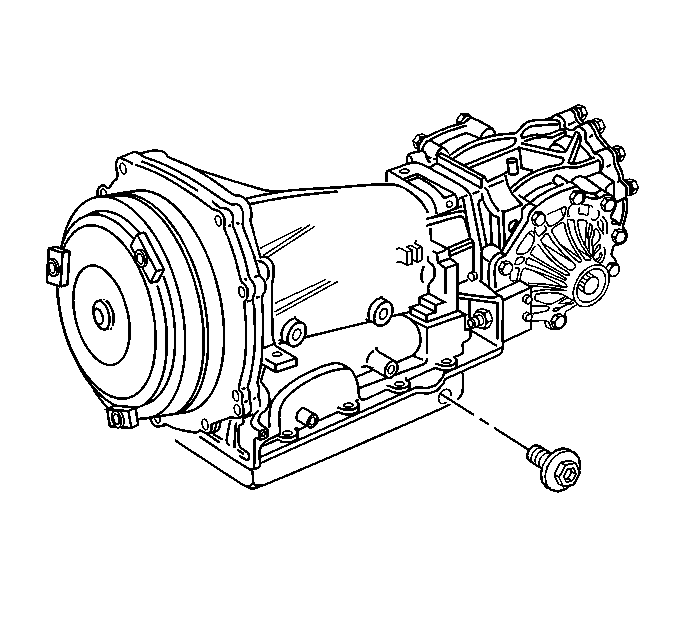
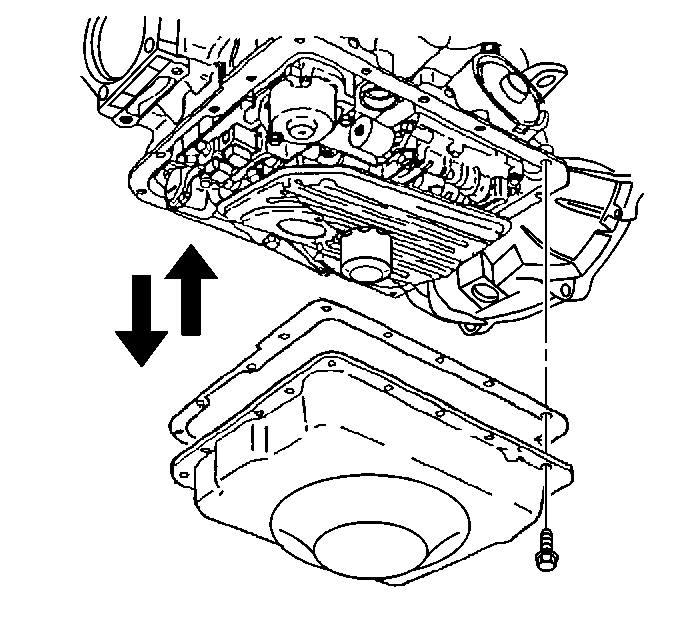
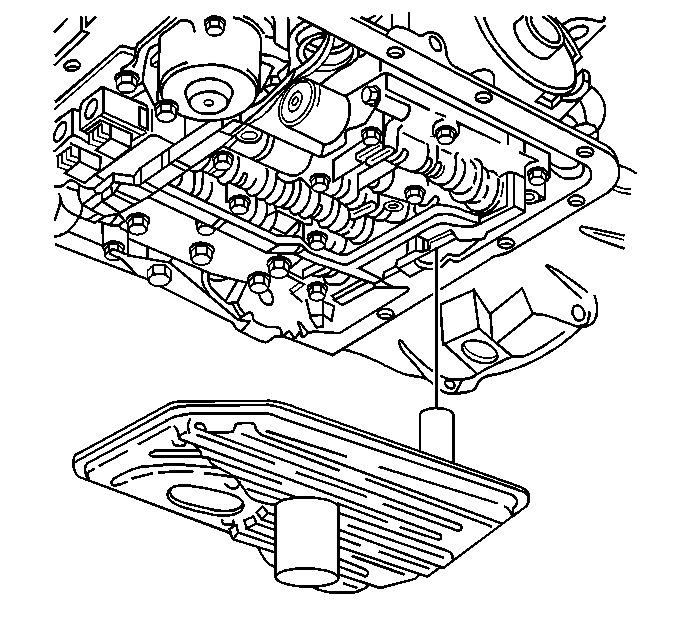
Important: Note the position of the filter before removal to aid in installation.
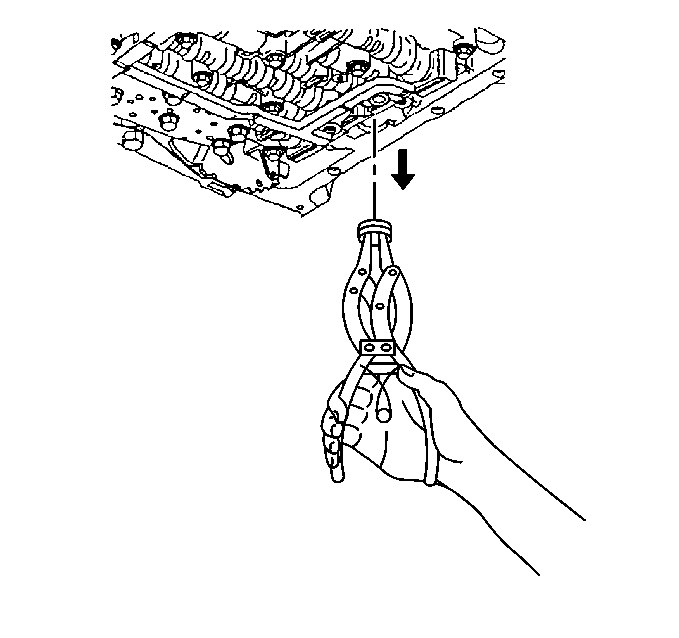
The filter seal may be stuck in the pump; if necessary, carefully use pliers or another suitable tool to remove the seal.
Pry the metal crimping away from the top of the filter and pull apart.
The filter may contain evidence for root cause diagnosis:
| • | Clutch material |
| • | Bronze slivers indicating bushing wear |
| • | Steel particles |
Important: Remove ALL traces of old gasket material from the transmission case and the oil pan gasket surfaces.
Installation Procedure
- Coat the new filter seal with a small amount of J 36850 or equivalent.
- Install the new filter seal into the transmission case.
- Install the new oil filter into position as noted during removal.
- Inspect the oil pan bolts and washers to determine if the conical washers are reversed.
- Install the new oil pan gasket to the oil pan sealing surface.
- Position the oil pan to the transmission case and support the oil pan.
- Install the oil pan bolts.
- Remove the transmission fluid check/fill plug.
- Fill the transmission with DEXRON®-III automatic transmission fluid through the check/fill plug hole until fluid begins to pour out, then install the check/fill plug hand-tight.
- Complete filling the transmission with fluid to the proper level. Refer to Transmission Fluid Check .
- Tighten the transmission fluid check/fill plug.
- Inspect the oil pan gasket for leaks.
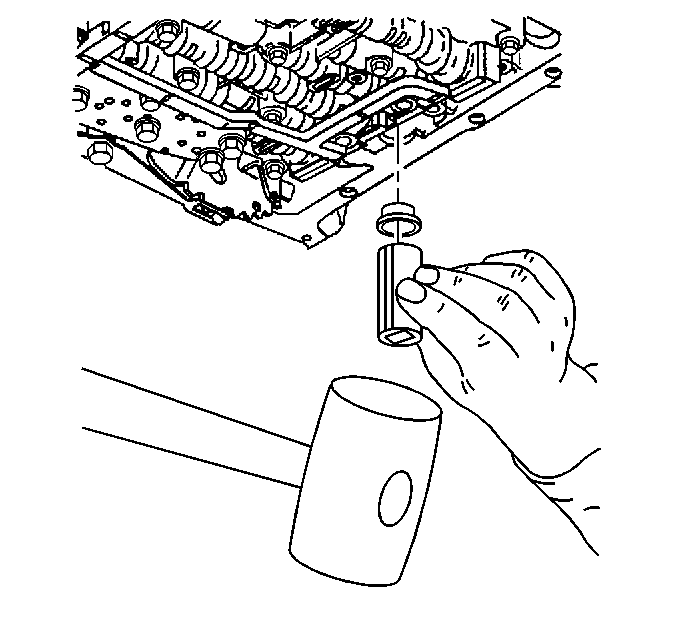
Gently tap the seal into place using a suitable size socket.

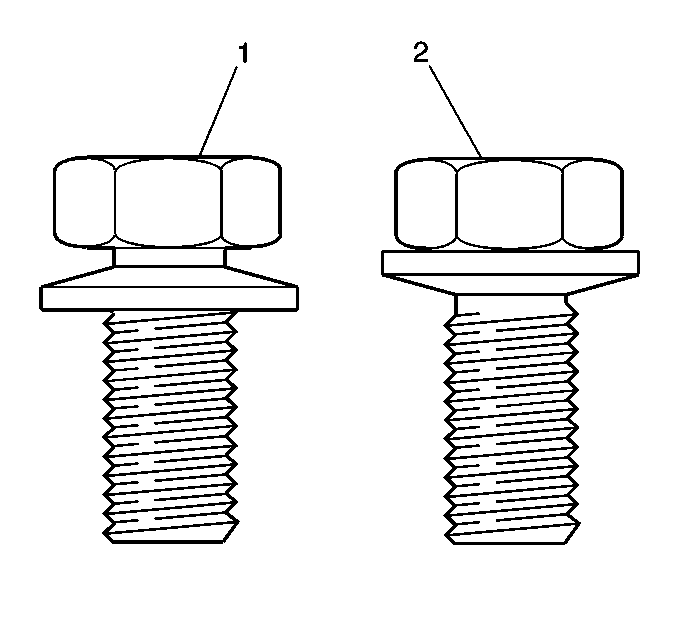
| • | Reuse the oil pan bolts and washers if the conical washers are NOT reversed (1). |
| • | Replace the oil pan bolts and washers if the conical washers are reversed (2). |

Notice: Use the correct fastener in the correct location. Replacement fasteners must be the correct part number for that application. Fasteners requiring replacement or fasteners requiring the use of thread locking compound or sealant are identified in the service procedure. Do not use paints, lubricants, or corrosion inhibitors on fasteners or fastener joint surfaces unless specified. These coatings affect fastener torque and joint clamping force and may damage the fastener. Use the correct tightening sequence and specifications when installing fasteners in order to avoid damage to parts and systems.
Tighten
Tighten the transmission oil pan bolts alternately and evenly to 11 N·m
(97 lb in).

Tighten
Tighten the transmission fluid check/fill plug to 30 N·m
(22 lb ft)
